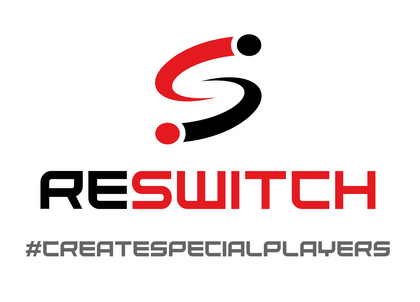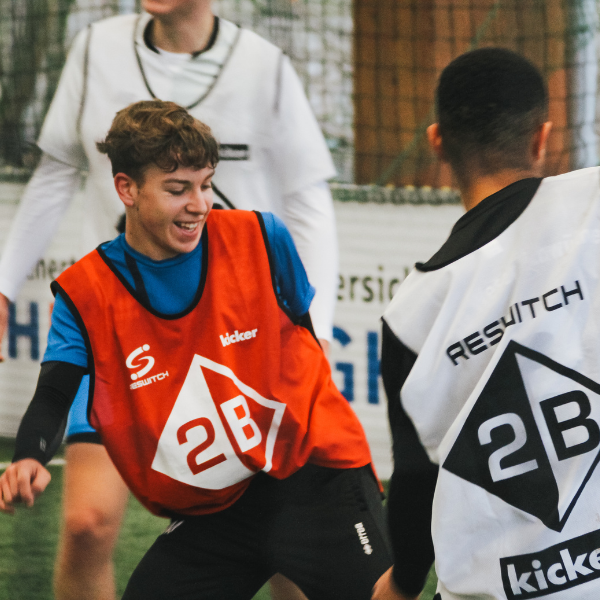Game intelligence
In modern, high-performance football, game intelligence is often cited as the decisive factor for success. It enables top players to grasp complex game situations at lightning speed, make the right decisions and implement them effectively. In this article, we examine the importance of game intelligence in training at the highest level, differentiate it from other skills and present practical training methods that meet the high standards of football coaches with the highest license.
1. Introduction

Let's remember the legendary 2014 World Cup final: Mario Götze's game-winning goal against Argentina illustrates the immense importance of game intelligence in top-class football. Lightning-fast anticipation of the course of the game, the right decision in pressure situations and perfect technical implementation - these are the skills that characterize players with outstanding game intelligence.
2. Definition and meaning of game intelligence
Game intelligence involves a complex interplay of cognitive abilities that must be developed at the highest level:
- Situation awareness: Comprehensive recording of all relevant game aspects in real time (e.g. positions of teammates and opponents, score, ball possession, spatial conditions).
- Anticipation: Mental forecast of the game development and the next moves (e.g. running routes of the opponents, possible passes, development of game situations).
- Decision making: Fast and correct decisions in pressure situations taking into account all relevant factors (e.g. passing, dribbling, shooting, build-up play, pressing).
- Understanding of the game: In-depth knowledge of tactical principles and rules of the game as well as their flexible application in variable game situations.
3. Differentiation from other relevant skills
Game intelligence primarily encompasses cognitive skills. However, a game-intelligent player must also have the technical and physical prerequisites to be able to implement solutions.
- Technique: for example, the ability to control and guide the ball.
- Athletics: Physical performance (e.g. speed, strength, endurance) plays an important role, but is not sufficient for complex game intelligence.
4. Training methods to promote game intelligence at the highest level
In order to develop players at the highest level, a sophisticated training concept is required:
- Complex game forms: Realistic game forms with a high game tempo and variable game situations (e.g. positional games, small games with an excess or deficit of players, game forms with special challenges such as compulsory contacts).
- Video training with tactical analysis: Analysis of game situations at the highest level (e.g. Champions League, top international leagues) and discussion of tactical decisions and game intelligence of the players.
- Mental training with a focus on concentration and decision-making: Training under pressure and in complex situations to sharpen the ability to make the right decisions in fractions of a second.
- Individual tactical training: teaching tactical subtleties and game principles, taking into account the individual strengths and weaknesses of the players.
5. Examples of practical implementation at the highest level
- Positional game "4 against 4 in a confined space with two goals and two jokers": This game simulates the intensity and complexity of a real game at the highest level. The players must constantly keep an eye on the positions of their teammates and opponents, make quick decisions and act tactically cleverly in order to score or prevent goals. The two jokers can make the game even more difficult with unpredictable actions and force the players to adapt even faster and find flexible solutions. It gets even more intense with RESWITCH.
- Video training of Lionel Messi's game decisions: The analysis of Messi's game-deciding dribbling, passing and goals illustrates his outstanding game intelligence in all facets. In a team meeting, the players discuss his anticipation of the game, his understanding of the game, his decision-making and his technical implementation.
- Mental training: Many players practice concentrating on the next shot on goal under extreme pressure and blocking out distractions such as opponents, crowd noise and time pressure. Mental techniques such as visualization and self-talk help to focus concentration and optimize performance.
- Individual tactical training: Give your players individual feedback, for example on their positioning, their tackling behavior and their build-up play from the defense. As a coach, you help them to further develop their game intelligence.
Conclusion
Game intelligence is a key skill in modern, high-performance football, which can be promoted through targeted and demanding training. By promoting game intelligence, players can optimize their performance and contribute to the success of their team.
Take a look at the Training tab to see how you can train with the RESWITCH bibs.




